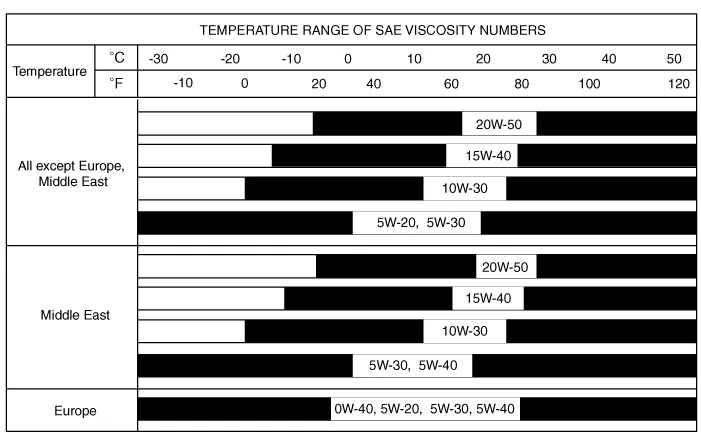Hyundai Venue (QX): Lubrication System / Engine Oil. Repair procedures
Hyundai Venue (QX) (2020-2026) Service Manual / Engine Mechanical System / Lubrication System / Engine Oil. Repair procedures
| Replacement |
|
| 1. |
Drain the engine oil.
|
| 2. |
Remove the oil filter (A) with the SST (09263-2E000, the oil filter
wrench).
|
| 3. |
Refill with engine oil.
|
| 4. |
Start engine and check for oil leaks.
|
| 5. |
Recheck the engine oil level.
|
| Inspection |
Engine Oil
| 1. |
Check the engine oil quality.
Check the oil deterioration, entry of water, discoloring of thinning.
If the quality is visibly poor, replace the oil.
|
| 2. |
Check the engine oil level.
After warning up the engine and then 5 minutes after the engine stop,
oil level should be between the "L" and "F" marks in the dipstick.
If low, check for leakage and add oil up to the "F" mark.
|
Selection of Engine Oil
Specification
For all except Middle East :
API SM & ILSAC GF-4 or above / 5W-20
ACEA A5 or above / 5W-20
For Middle East :
ACEA A5 or above / 5W-30
|
SAE viscosity grade
Refer to the recommended SAE viscosity number.

|
Removal and Installation 1. Disconnect the battery negative terminal. 2. Remove the engine room under cover.
Other information:
Hyundai Venue (QX) (2020-2026) Service Manual: Condenser. Repair procedures
Inspection 1. Check the condenser fins for clogging and damage. If clogged, clean them with water, and blow them with compressed air. If bent, gently bend them using a screwdriver or pliers. 2.
Hyundai Venue (QX) (2020-2026) Service Manual: PTC Heater. Repair procedures
Inspection Operating Logic Test (Manual only) Inspect the PTC operation by confirmation logic as follows; 1. Entering (1) Set the Floor mode and maximum heating position. (2) Turn off the blower switch.
Categories
- Manuals Home
- Hyundai Venue Owners Manual
- Hyundai Venue Service Manual
- Remote start
- Engine Mechanical System
- Child-Protector Rear Door Locks
- New on site
- Most important about car
Copyright © 2026 www.hvenueqx.com - 0.0124





